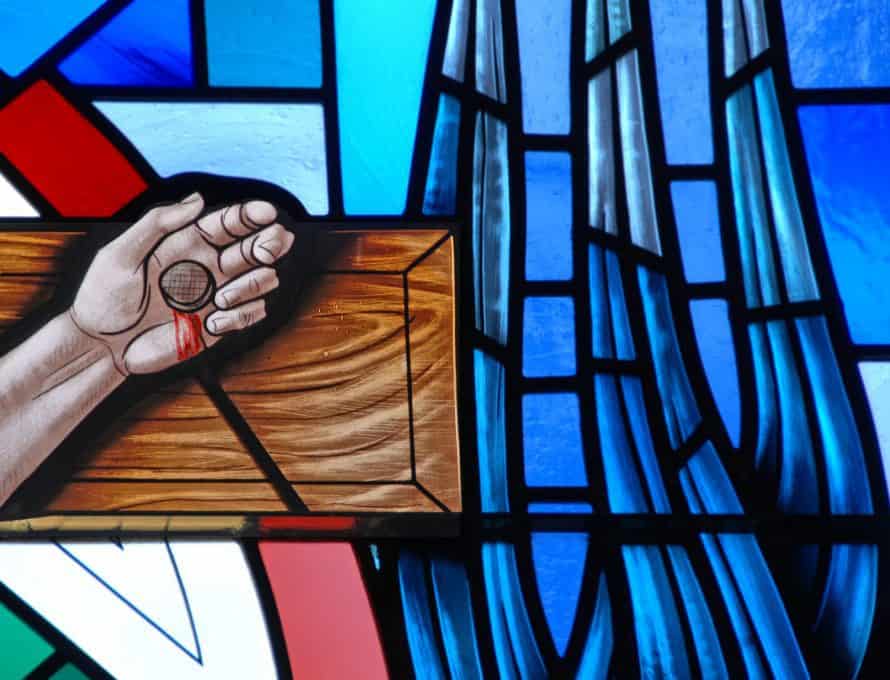This is another in a series of excerpts from “What Every Christian Should Know About the Trinity,” available through Amazon and other booksellers.
Christians often find it necessary to defend the deity of Christ, especially in conversations with those who vigorously deny this biblical truth.
For example, Muslims hold Jesus in high regard as a virgin-born, miracle-working, sinless prophet, but they draw the line at His divinity.
Jehovah’s Witnesses grant Jesus the status of “mighty god,” a created archangel who is transformed into Jesus the man, and then, after dying on a torture stake, is spiritually resurrected as an exalted archangel.
To their credit, Muslims and Jehovah’s Witnesses admire Jesus. Unfortunately, they proclaim “another Jesus” than the one revealed in Scripture (2 Cor. 11:4).
Our efforts to defend the deity of Jesus, however, require us to grapple with the unique challenges His humanity presents. The Bible is clear that Jesus is the God-Man. That is, two thousand years ago, the eternal Son of God added sinless humanity to His deity through the virgin birth and thus became the only person in history with two natures: divine and human.
Critics of the orthodox view often respond with questions such as: If Jesus is God, why doesn’t He know the day or hour of His return (Mark 13:32)? Why does Jesus get tired, thirsty, and hungry (Mark 11:12; John 4:6; 19:28)? Why does He insist that the Father is greater than He is (John 14:28)? And, if Jesus truly is divine, how is it possible for God to die (John 19:30)?
Divinity in human skin
These are challenging questions. If the Incarnation means that Jesus is completely divine and completely human at the same time, never surrendering one nature to the other, how might we explain the apparent absence of divine attributes at certain times in our Savior’s life?
Theologian Bruce Ware provides marvelous insight into the two natures of Christ in The Man Christ Jesus. He begins with an exposition of Philippians 2:5-8, which expresses the self-emptying of the eternal Son as He takes on human nature.
First, Ware notes that Paul expresses no doubts about the deity of Christ. The phrase “though he was in the form of God” (Phil. 2:6 ESV) employs the Greek word morphe, which refers to the inner nature or substance of something, not its external or outward shape. Therefore, Paul’s point is clear: Jesus, being in the “form” of God, exists in very nature as God, with the inner divine substance that is God’s alone.
Second, when Paul writes that Christ “did not count equality with God a thing to be grasped” (Phil. 2:6 ESV), he cannot mean that Christ gave up equality with God or that He ceased to be fully God. Rather, Jesus did not cling to His privileged position at the Father’s right hand, or to the rights and prerogatives that go along with full equality with the Father. Instead, He fulfilled His mission as the Servant of all.
Third, Jesus “emptied himself, by taking the form of a servant” (Phil. 2:7 ESV). The Greek ekenosen means Christ “poured out himself.” In other words, all of Christ, as eternal God, is poured out. As Jesus becomes human, He loses nothing of His divine nature.
Fourth, Jesus “humbled himself by becoming obedient to the point of death, even death on a cross” (Phil. 2:8 ESV). Ware notes, “This is the obedience that accepts suffering, rejection, ridicule, and agony. Surely the Son, in eternity past, never had to embrace this kind of obedience in his relation to the Father…. To obey to the point of death requires the ability to die, and for this, Jesus had to be human.”
So, when we come to passages that tell us Jesus doesn’t know something, or gets hungry or thirsty, or dies, we may understand that Jesus neither surrenders His deity nor abandons His claims of divinity. Rather, “He had to be like His brothers in every way, so that He could become a merciful and faithful high priest in service to God, to make propitiation for the sins of the people” (Heb. 2:17 HCSB).
Next: The doctrine of the Incarnation

